Unveil the Rich Tapestry of Turkish Heritage
Türkiye is a captivating blend of East and West, not just geographically but culturally, socially, and politically. Positioned at the crossroads of Asia and Europe, Türkiye embodies a rich tapestry of history, tradition, and modernity. This unique positioning has allowed countless civilizations to flourish, creating a land of immense cultural and ethnic diversity. From the bustling cities to the smallest villages, Türkiye’s lifestyle reflects a harmonious coexistence of ancient traditions and contemporary influences, offering visitors a warm and enriching experience that bridges the old and the new.
Diversity and Harmony
Türkiye’s strategic location at the convergence of Asia and Europe has established it as a vibrant tapestry of cultures, traditions, and beliefs over the centuries. The regions of Anatolia and Thrace have served as a cradle for some of history’s most extraordinary civilizations, each contributing to a rich legacy. This remarkable cultural and ethnic diversity permeates every facet of Turkish life, visible in its language, cuisine, architecture, and art. In Türkiye, the past and present harmoniously intertwine; ancient customs and rituals thrive alongside a swiftly modernizing society. Wherever you travel, even in the most remote villages, you will discover a lively blend of traditions, dialects, and beliefs, all mirroring the nation’s abundant cultural mosaic.
The rich diversity of Türkiye has cultivated a harmonious culture, where the Turkish people are known for their warmth, friendliness, and extraordinary hospitality. With deep roots in a tradition of helping others, Turkish society flourishes on principles of mutual respect and kindness. Many visitors have noted the authentic generosity of locals, who readily offer assistance to strangers, even when faced with language barriers. The spirit of hospitality in Türkiye is evident in everyday life, from sharing meals with neighbors to welcoming refugees during times of need. This collective sense of unity and compassion highlights the essence of harmony in Türkiye, where cultural differences are not only accepted but celebrated.
Highlights of Turkish Culture
Explore the diverse and vibrant aspects of Turkey’s cultural landscape.
Rich Historical Heritage
Türkiye’s history spans thousands of years, with remnants of civilizations like the Hittites, Byzantines, and Ottomans visible across its landscape. Iconic sites such as Ephesus, Troy, and Hagia Sophia serve as gateways to Türkiye’s storied past. This blend of history and culture creates a living museum where every corner tells a story
The Art of Turkish Cuisine
Turkish cuisine is a delightful fusion of flavors influenced by Mediterranean, Middle Eastern, and Central Asian traditions. Signature dishes like kebabs, baklava, and Turkish delight offer a sensory journey through the country’s culinary heritage. Sharing food is deeply rooted in Turkish culture, symbolizing warmth and hospitality.
Hospitality and Generosity
In Türkiye, hospitality is more than a tradition—it’s a way of life. Guests are treated as sacred, with hosts going out of their way to ensure comfort and happiness. From sharing meals to offering treats like tea, Turkish people embody kindness and generosity
Traditional Arts and Crafts
Türkiye’s history spans thousands of years, with remnants of civilizations like the Hittites, Byzantines, and Ottomans visible across its landscape. Iconic sites such as Ephesus, Troy, and Hagia Sophia serve as gateways to Türkiye’s storied past. This blend of history and culture creates a living museum where every corner tells a story
Festivals and Celebrations
Turkish cuisine is a delightful fusion of flavors influenced by Mediterranean, Middle Eastern, and Central Asian traditions. Signature dishes like kebabs, baklava, and Turkish delight offer a sensory journey through the country’s culinary heritage. Sharing food is deeply rooted in Turkish culture, symbolizing warmth and hospitality.
Music and Dance
Turkish music and dance capture the country’s soul, blending traditional folk rhythms with modern influences. Instruments like the saz and performances such as the Whirling Dervishes reflect Türkiye’s spiritual and cultural depth. These art forms continue to evolve while preserving their roots.
A Multilingual Society
Türkiye’s cultural diversity is mirrored in its linguistic variety, with Turkish as the dominant language and regional dialects adding richness. This multilingual aspect is a testament to the country’s deep ethnic and cultural heritage. Communication is a bridge to understanding the unity within diversity.
Religious and Spiritual Life
As a secular nation with a majority Muslim population, Türkiye embraces religious diversity. Mosques, churches, and synagogues coexist, reflecting a culture of tolerance and harmony. Religious practices and holidays are integral to Turkish identity and community life.
Family and Social Bonds
In Türkiye, hospitality is more than a tradition—it’s a way of life. Guests are treated as sacred, with hosts going out of their way to ensure comfort and happiness. From sharing meals to offering treats like tea, Turkish people embody kindness and generosity
Modernity Meets Tradition
Türkiye seamlessly blends modernity with tradition, offering a unique cultural experience. While cities like Istanbul embrace global trends, rural areas preserve age-old customs. This balance between old and new reflects the dynamic and evolving nature of Turkish culture
Folktales and Legends
Türkiye is home to a treasure trove of folktales and legends, such as Nasreddin Hodja’s humorous stories and the myth of Troy. These tales have been passed down for generations, enriching the nation’s cultural identity and sparking imagination
Architectural Splendor
Türkiye’s architecture reflects its rich history, from ancient temples and Byzantine churches to grand Ottoman palaces. Iconic landmarks like the Blue Mosque and Topkapi Palace showcase the country’s architectural genius and cultural diversity.
Superstitions and Symbols
Symbols like the Evil Eye (Nazar Boncugu) hold a special place in Turkish culture. Often used as charms, they reflect a belief in protecting against negative energy. Superstitions and symbols offer an intriguing insight into Türkiye’s folk traditions
Bazaars and Markets
Vibrant bazaars like Istanbul’s Grand Bazaar are a cornerstone of Turkish culture. These markets are buzzing with life, offering everything from spices and textiles to handcrafted jewelry. Shopping in a bazaar is not just a transaction—it’s an experience of history, negotiation, and tradition.
Architectural Splendor
Türkiye’s architecture reflects its rich history, from ancient temples and Byzantine churches to grand Ottoman palaces. Iconic landmarks like the Blue Mosque and Topkapi Palace showcase the country’s architectural genius and cultural diversity
Cultural Events in Turkey
Ramadan and Eid Celebrations
Ramadan, a month of fasting and spiritual reflection, is deeply rooted in Turkish culture. The celebrations culminate in Eid (Ramazan Bayramı), marked by family gatherings, special meals, and charity. These traditions create a sense of unity and joy across the nation.
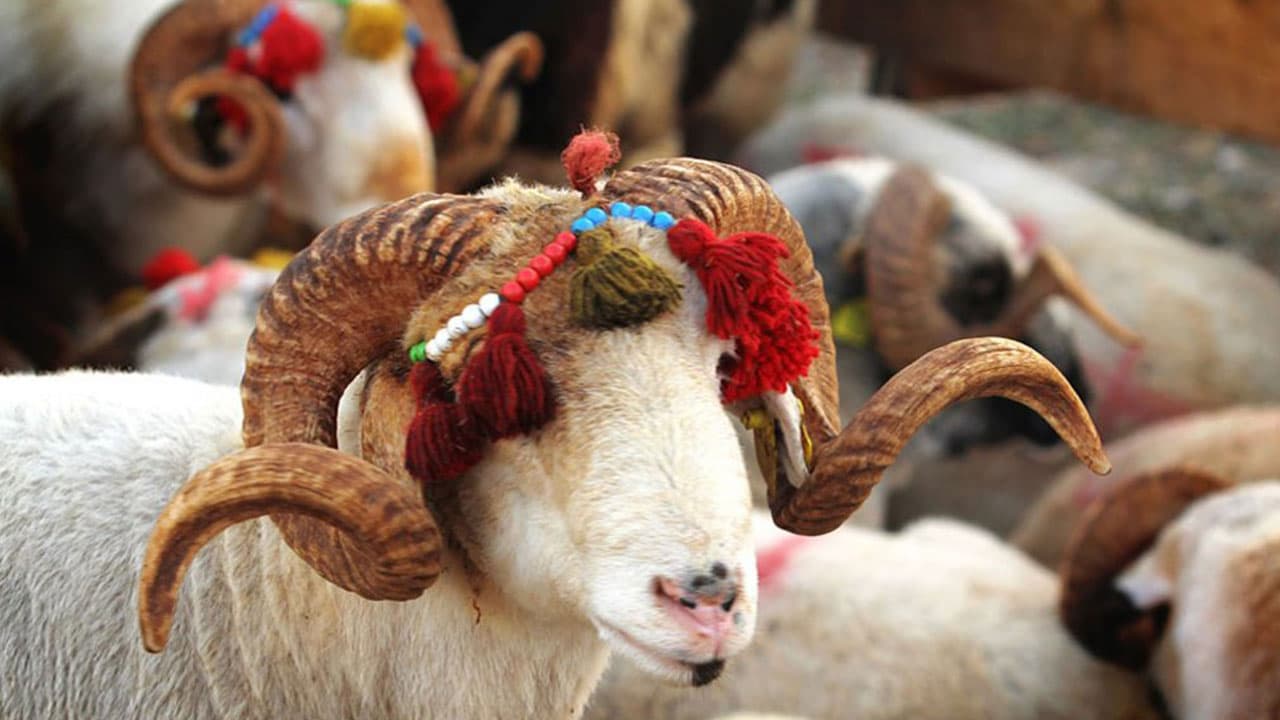
Sacrifice Feast (Kurban Bayramı)
Known as the Festival of Sacrifice, Kurban Bayramı commemorates the willingness of Prophet Ibrahim to sacrifice his son. Families gather to perform the ritual, share meat with those in need, and celebrate with loved ones. It’s a time for generosity and reflection.
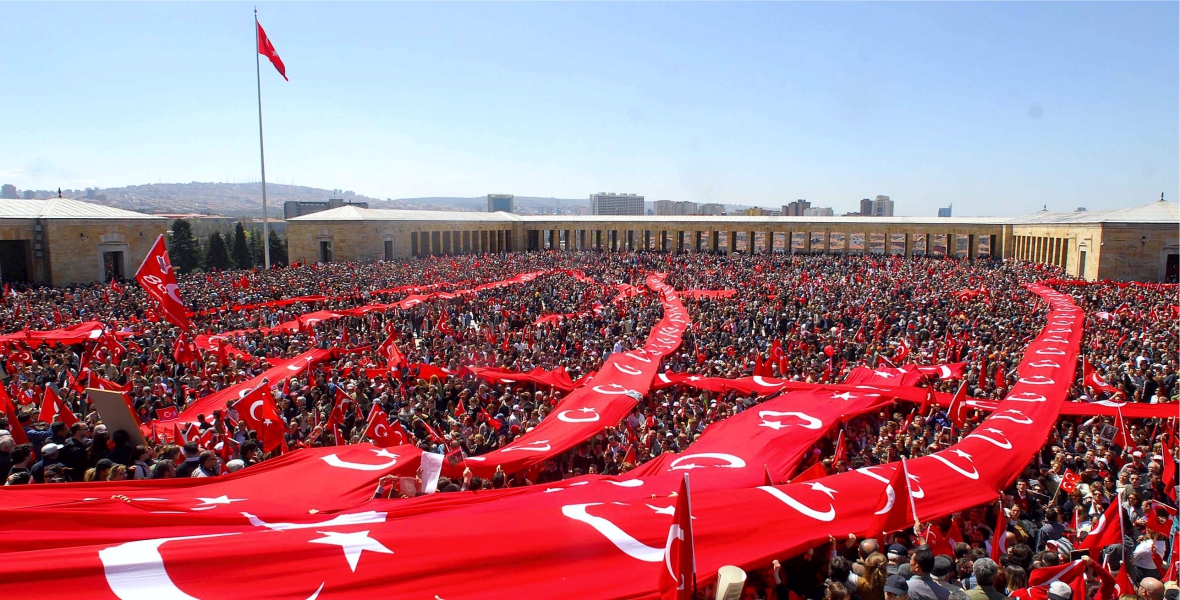
Republic Day (October 29th)
Republic Day celebrates the founding of the Turkish Republic in 1923. It’s marked by parades, concerts, and public festivities across the country. Citizens proudly display the national flag, reflecting their patriotism and love for their homeland.

International Istanbul Film Festival
Held annually in Istanbul, this prestigious event showcases films from Turkey and around the world. The festival attracts cinephiles and industry professionals, celebrating creativity and storytelling. It highlights Türkiye’s growing influence in the global film industry.
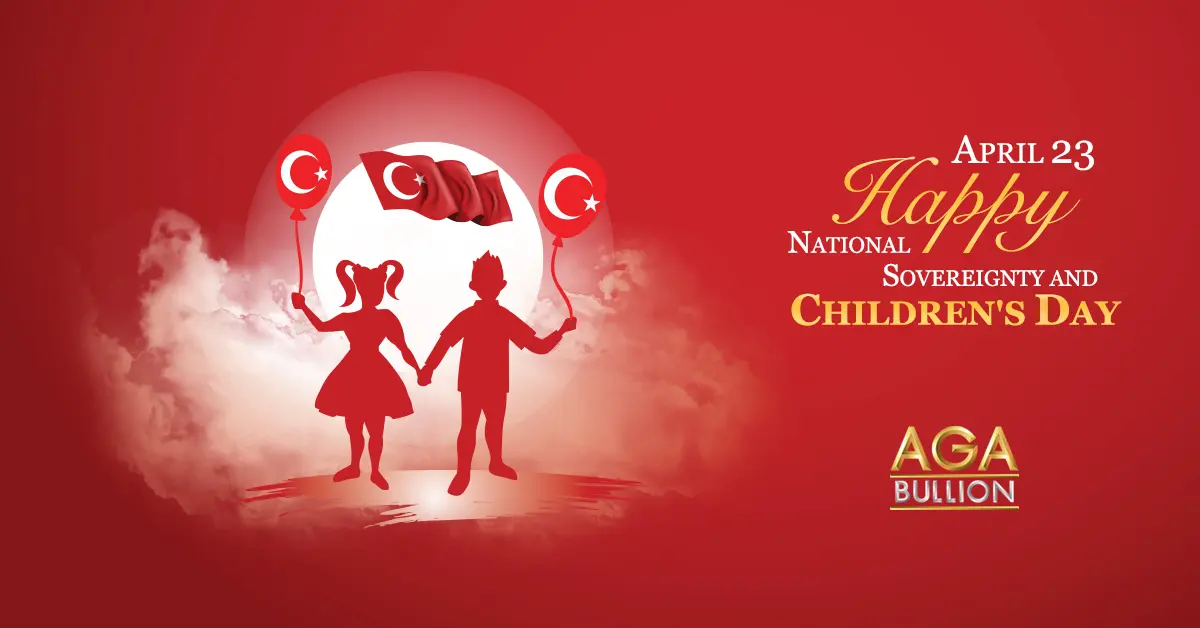
National Sovereignty and Children's Day (April 23rd)
This unique holiday, dedicated to children, reflects Türkiye’s emphasis on youth and education. Schools organize performances, parades, and cultural events for children to participate in. It’s a joyful day celebrating future generations.
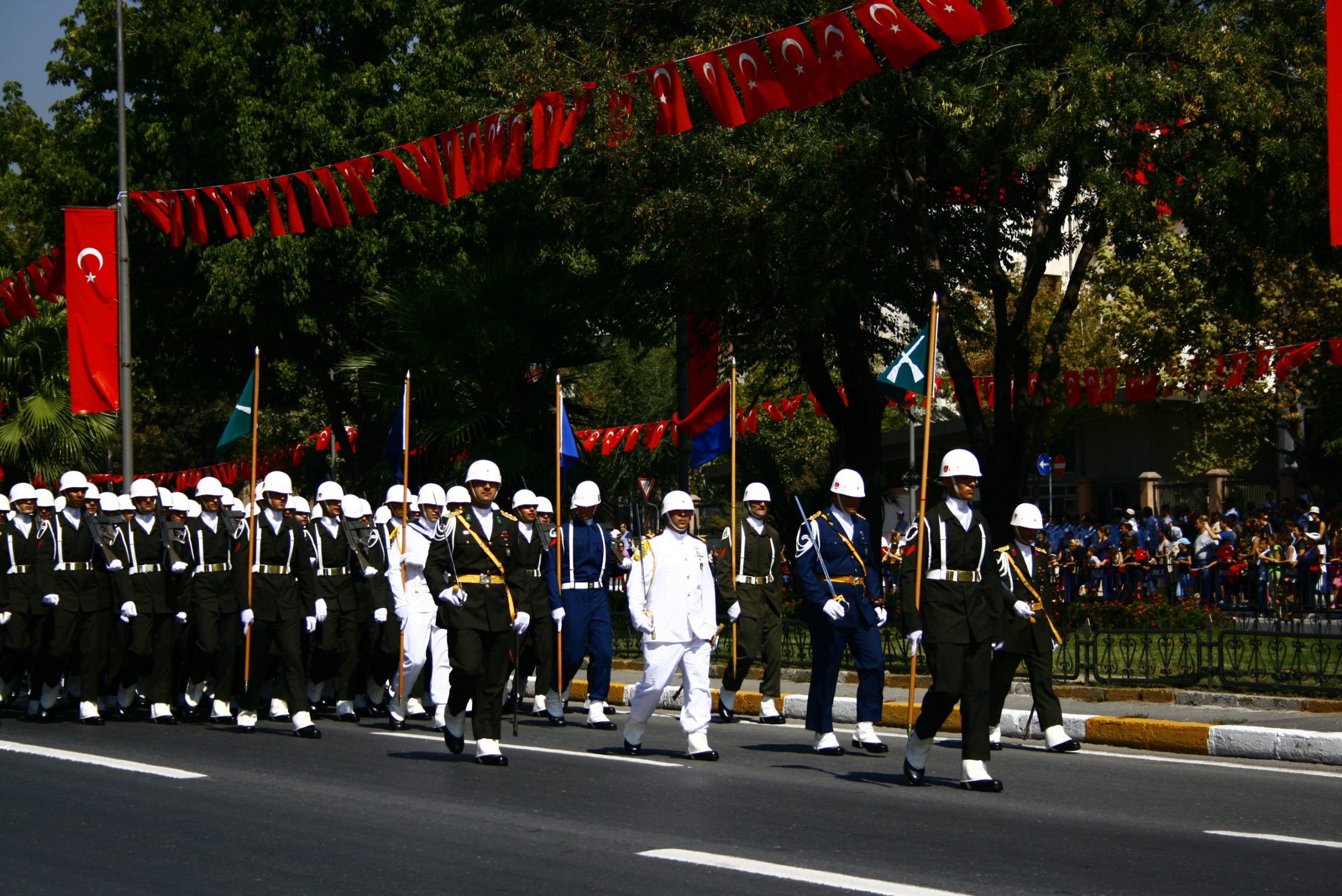
Victory Day (August 30th)
Victory Day commemorates Türkiye’s triumph in the War of Independence in 1922. The day is celebrated with military parades, fireworks, and national pride. It’s a moment to honor the country’s struggle for freedom and sovereignty.
Cappadocia Hot Air Balloon Festival
This annual festival in Cappadocia features colorful hot air balloons soaring over surreal landscapes. The event includes cultural performances, exhibitions, and workshops. It’s a unique way to celebrate Türkiye’s natural beauty and creativity.

Hidirellez Festival
Celebrated on May 6th, this spring festival marks the arrival of summer. It’s a time for music, dancing, and wishes written on paper and tied to trees. The festival reflects Türkiye’s rich folklore and love for nature.
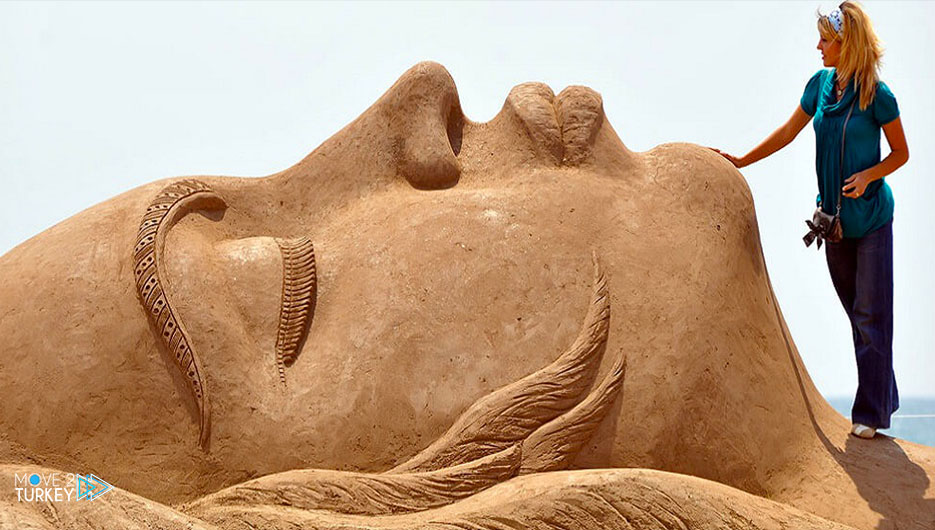
Antalya International Sand Sculpture Festival
This artistic event transforms Antalya’s beaches into a gallery of intricate sand sculptures. Artists from around the world showcase their creativity, crafting massive sculptures on various themes. The festival draws art enthusiasts and tourists alike.

Efes Opera and Ballet Festival
Held in the ancient ruins of Ephesus, this festival brings classical art to life. Performances of opera and ballet take place in open-air theaters, blending history with artistic expression. It’s a magical experience for lovers of the performing arts.

Ankara Music Festival
This renowned festival features performances by Turkish and international musicians. Spanning genres from classical to contemporary, it highlights Türkiye’s musical talent. The event attracts audiences from around the globe, showcasing Ankara’s cultural vibrancy.
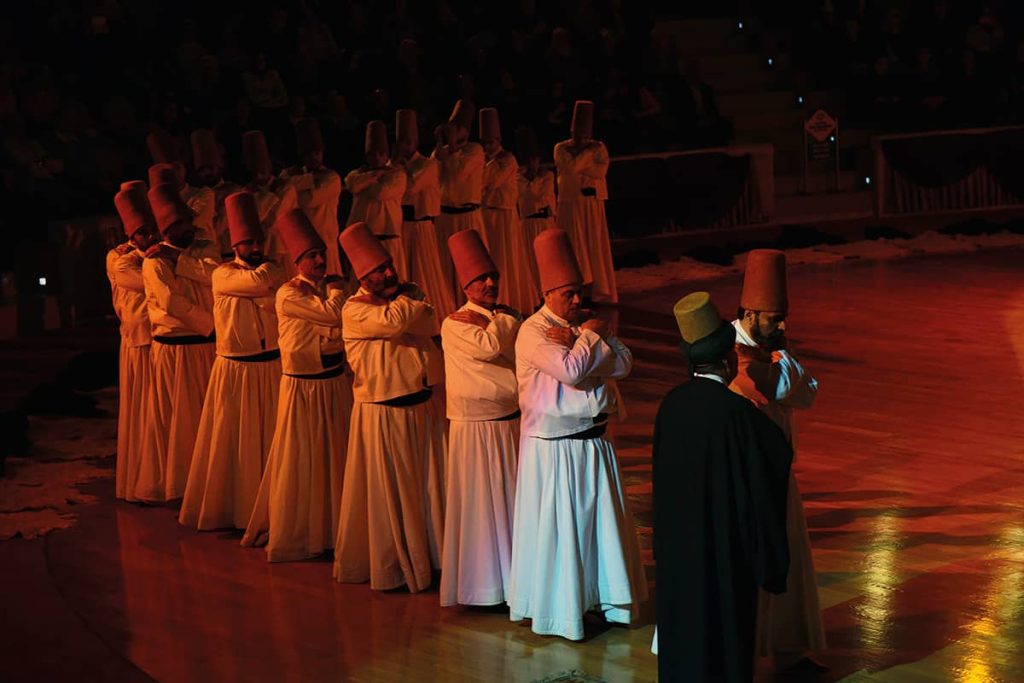
Mevlana Commemoration Week
This week-long event in Konya celebrates the teachings of Rumi, the great Sufi poet. It includes whirling dervish performances, lectures, and cultural exhibitions. The festival is a spiritual journey that draws visitors from all over the world.

